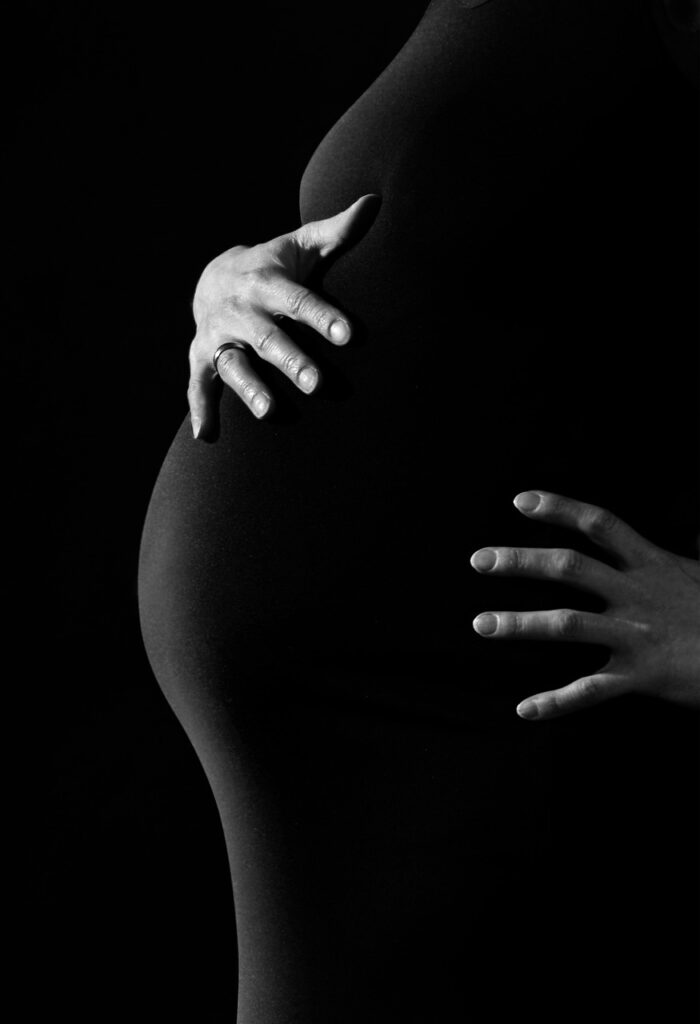Pregnancy is an incredible journey filled with excitement, changes, and new experiences. Over the course of 40 weeks, your body undergoes significant transformations to support the growth and development of your baby. Understanding the different stages of pregnancy can help you prepare for what’s to come. Let’s explore the three main stages, or trimesters, of pregnancy and what you can expect during each phase.

First Trimester: Weeks 1–12
The first trimester is a time of rapid development and change. From the moment of conception to the end of week 12, your baby grows from a tiny cluster of cells into a fully formed fetus. This stage is often when you’ll experience the most symptoms as your body adjusts to pregnancy.
What’s Happening with Baby:
- Weeks 1–4: The fertilized egg implants itself into the uterine wall, and the placenta begins to form. During this time, the baby is known as a blastocyst.
- Weeks 5–8: Your baby’s heart begins to beat, and their major organs, like the brain and lungs, start developing. By week 8, your baby is now officially called a fetus.
- Weeks 9–12: All major body systems and organs are formed, and facial features like eyes, ears, and a tiny nose are beginning to take shape.
What You May Experience:
- Morning Sickness: Nausea and vomiting are common due to hormonal changes, especially in the mornings.
- Fatigue: Your body is working hard, which can leave you feeling more tired than usual.
- Frequent Urination: Increased blood flow to the kidneys can make you feel the need to urinate more often.
- Emotional Changes: Hormonal shifts may cause mood swings and heightened emotions.
Second Trimester: Weeks 13–26
Many women find the second trimester to be the most comfortable phase of pregnancy. The symptoms of early pregnancy often fade, and you begin to feel more energetic. This is also when you’ll likely start showing, as your baby continues to grow rapidly.
What’s Happening with Baby:
- Weeks 13–16: Your baby’s organs are becoming more specialized. Hair, eyebrows, and lashes begin to grow, and the baby can now move its limbs.
- Weeks 17–20: You may begin to feel your baby’s movements, known as “quickening.” Their senses, like hearing and touch, are developing, and they can now respond to sounds from outside the womb.
- Weeks 21–26: The baby’s muscles and bones are strengthening, and their heartbeat can be detected with a stethoscope. The baby also starts to accumulate fat to regulate body temperature after birth.
What You May Experience:
- Increased Energy: The fatigue from the first trimester often fades, giving you more energy.
- Baby Movements: Feeling your baby kick or move for the first time is a thrilling experience.
- Body Changes: Your belly will expand, and you may notice other changes, such as darkening of the skin (linea nigra) and stretch marks.
- Back Pain: As your baby grows, the added weight can put pressure on your lower back, causing discomfort.
Third Trimester: Weeks 27–40
The third trimester is the final stage of pregnancy, and it’s when your baby undergoes the finishing touches before birth. This period can be physically demanding as you carry extra weight and prepare for labor.
What’s Happening with Baby:
- Weeks 27–30: Your baby’s brain is developing rapidly, and they begin to practice breathing by inhaling amniotic fluid. Their eyes can now open and close, and they can detect light and dark.
- Weeks 31–34: The baby’s bones are fully developed but still soft, and they start to gain weight quickly, preparing for life outside the womb.
- Weeks 35–40: The baby’s lungs mature, and they move into a head-down position in preparation for birth. By week 40, your baby is considered full-term and ready for delivery.
What You May Experience:
- Shortness of Breath: As your baby grows, they push against your diaphragm, making it harder to breathe.
- Swelling: You may notice swelling in your feet, ankles, and hands due to increased blood flow and fluid retention.
- Braxton Hicks Contractions: These “practice” contractions can start in the third trimester, helping your body prepare for labor.
- Nesting: Many women experience a burst of energy in the final weeks of pregnancy, known as nesting, where they feel the urge to prepare the home for the baby’s arrival.
Preparing for Birth
As you approach the final weeks of your pregnancy, it’s important to prepare for the big day. Here are a few tips:
- Pack Your Hospital Bag: Be sure to include essentials for both you and your baby, such as clothes, toiletries, and any important documents.
- Create a Birth Plan: Discuss your preferences for labor and delivery with your healthcare provider, including pain relief options and any special considerations.
- Attend Prenatal Classes: Many hospitals offer classes on childbirth, breastfeeding, and infant care to help you feel more confident about the upcoming birth.
Conclusion
Pregnancy is a unique and remarkable journey that brings a wide range of physical and emotional changes. Each stage offers new milestones for both you and your baby, from the early development of organs in the first trimester to the final preparations for birth in the third. By understanding these stages, you can better prepare for the journey ahead. Mama Lux is here to support you with essential products, expert advice, and resources to help make your pregnancy as smooth and joyful as possible.
